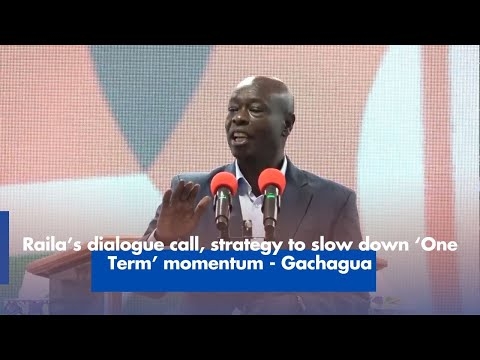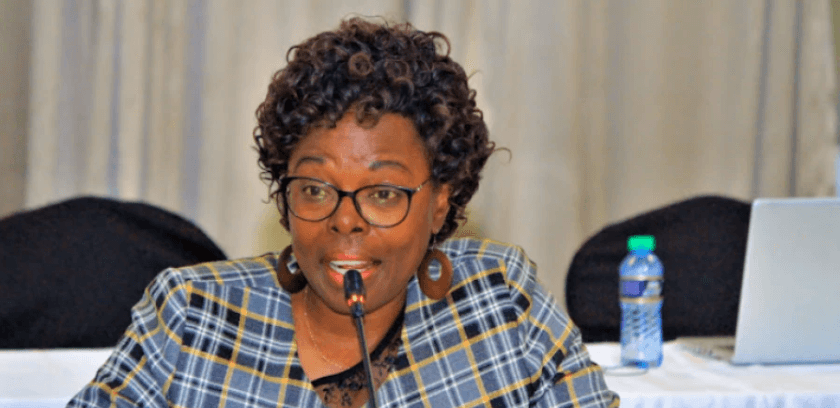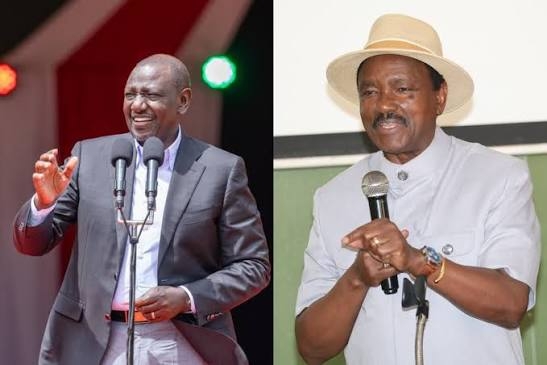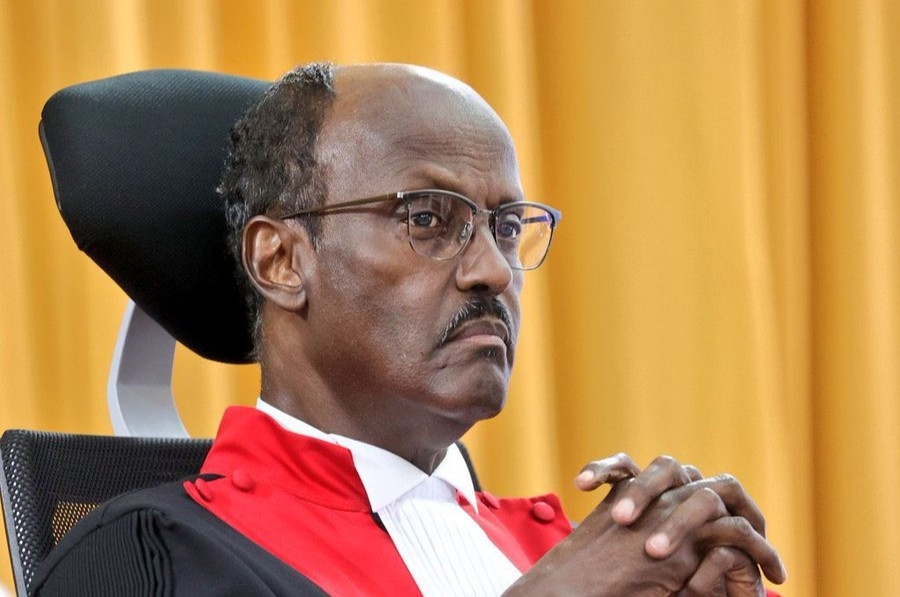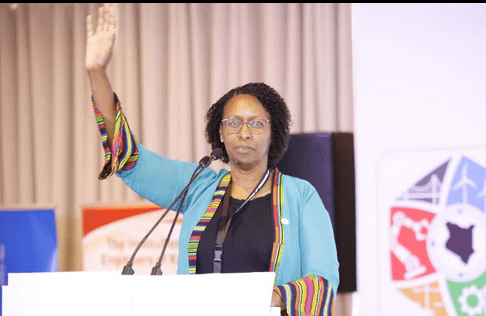
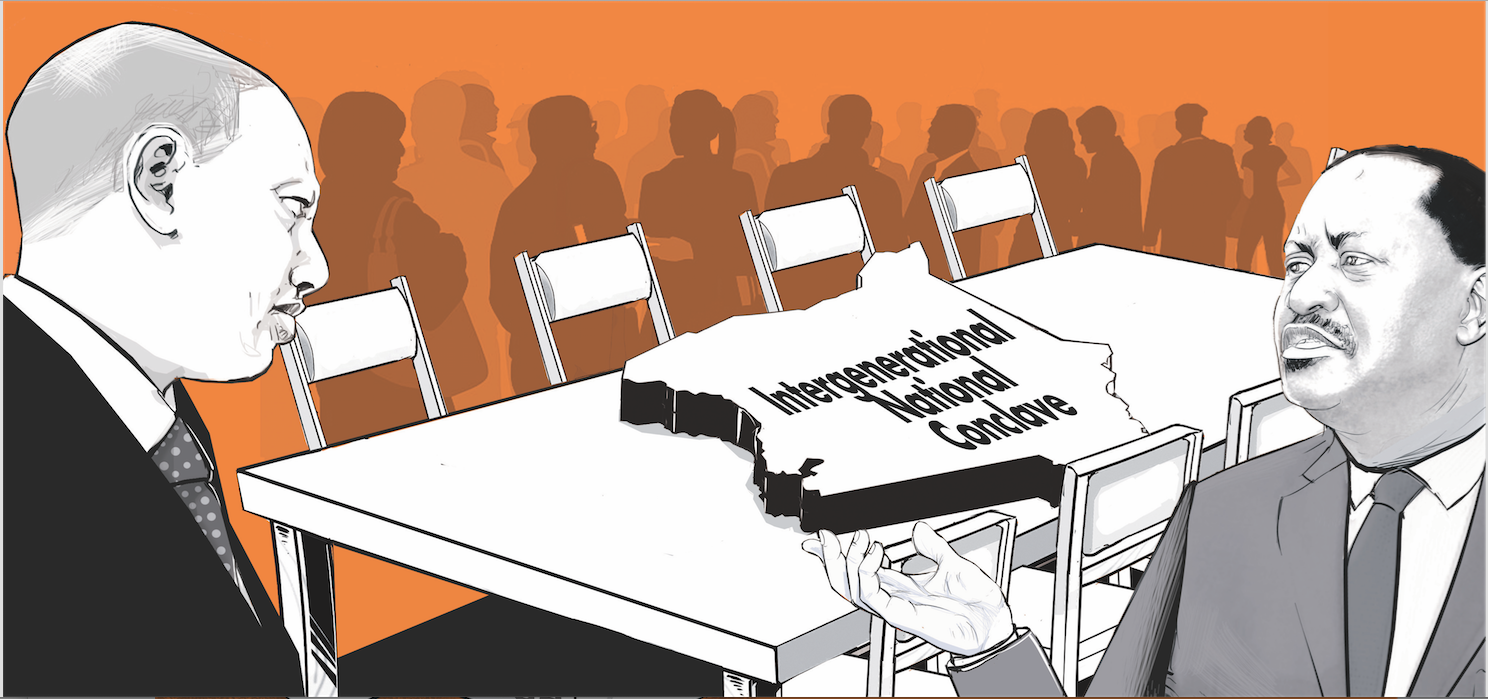
Kenya stands at a constitutional and political crossroads. Our social fabric is strained by a convergence of longstanding grievances—electoral injustice, police brutality, youth unemployment, endemic corruption and systemic exclusion—compounded by rising intergenerational tensions. These challenges require sober, inclusive and courageous leadership.
Calls for a national dialogue are growing stronger, most recently supported by Raila Odinga, through his proposal for an Intergenerational National Conclave. President William Ruto’s earlier willingness to reconcile must now develop into a conscious, inclusive and institutional process. The stakes are high. The opportunity to rebuild national unity must not be wasted.
In a recent televised interview, Raila proposed a bold, citizen-led dialogue model—from polling stations to a national platform—with at least 50 per cent youth representation at every level. His vision addresses the lived realities of a generation facing unemployment, disenfranchisement, and systemic inertia. He stressed the need to constitutionalise reforms and fully implement the Nadco report, adopted in late 2023 but still awaiting execution.
To his credit, Ruto had signalled a willingness to engage. In June 2024, he announced a six-day multi-sectoral forum aimed at broad stakeholder inclusion, particularly the youth. Unfortunately, the process never materialised. For such an initiative to regain credibility, it must be revisited with legal safeguards, implementation frameworks, clear timelines and inclusive structures that reflect Kenya’s diversity.
Deputy President Kithure Kindiki has also emphasised national unity and dialogue. Unlike his predecessor Rigathi Gachagua—who promoted an ethnic “shareholding” approach and dismissed dialogue as backroom deals—Kindiki’s tone has been markedly conciliatory. His appeals to Gen Z to embrace dialogue over violence offer hope of an executive shift. But words alone are not enough; only action will signal genuine change.
Ironically, Gachagua has re-emerged as a self-styled voice of generational frustration. Yet the grievances Gen Z expresses—inequity, exclusion, identity-based governance—are consequences of the political culture he once championed. His ethnic framing of public discourse and politicisation of resource allocation entrenched disenfranchisement. His recent statements during a US tour suggest a tactical repositioning ahead of 2027, rather than sincere reflection. Kenya’s youth must scrutinise such shifts.
Structured, inclusive dialogue is not just a moral obligation—it is a constitutional necessity. History shows that the cost of avoiding reform and ignoring public outcry is high. In 2007, disputed presidential results triggered post-election violence, killing over 1,200 and displacing 600,000.
In 2013, the shelving of the Truth, Justice and Reconciliation Commission report forfeited a chance for national healing. In 2017, attacks on judicial independence and violent protest suppression led to more than 100 deaths. Between 2022 and 2024, the unimplemented Nadco reforms sparked youth-led protests, resulting in over 100 deaths. Kenya’s crises are not spontaneous. They are eruptions from ignored truths and unheeded voices.
Ruto’s regional diplomacy reflects his understanding of the value of dialogue. Whether in the DRC, Sudan or Ethiopia, he has advocated inclusive settlements and constitutional governance. Through the African Peer Review Mechanism, he has championed consultation and good governance. Applying this same philosophy at home would elevate Kenya’s democratic standing and restore public trust.
To be credible and transformative, any national dialogue process must be anchored in the Constitution, ensuring outcomes are shielded from political volatility and sustained beyond electoral cycles. Youth representation must go beyond tokenism. With over 75 per cent of the population under 35, young people—especially Gen Z—must lead, not merely participate. A minimum of 50 per cent representation and real agenda-setting power on economic and social priorities are critical.
Moreover, Kenya can draw from the African Union or Commonwealth frameworks to provide independent oversight and accountability. This would help manage political mistrust and prevent partisan capture of the dialogue process.
It’s time for Ruto to translate diplomatic doctrine into domestic action. Repurposing the multi-sectoral forum—with legal safeguards, clear timelines, and inclusive participation—would be a tangible first step. Recommitting to full implementation of the Nadco report would reaffirm Kenya’s commitment to constitutionalism, generational justice and national unity.
Our future cannot be held hostage by historical wounds. We owe it to those who died in 2007—and those we lost in 2024—to say: never again. Dialogue is not weakness. It is maturity. As President Ruto once told his regional peers: “Dialogue is not weakness but collective wisdom.” The time has come to apply those words here at home.
Public affairs commentator and expert in leadership and governance


